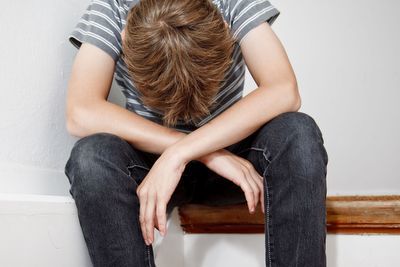Pressure is mounting on the UK government to introduce regulations to safeguard vulnerable children by controlling the widespread use of chill-out rooms in schools.
 Politicians have joined leading authorities on autism and disability in calling for a review of the rooms. Sometimes called safe rooms or time-out rooms as well as chill-out rooms, they have been reported to be used to seclude or punish youngsters with autism.
Politicians have joined leading authorities on autism and disability in calling for a review of the rooms. Sometimes called safe rooms or time-out rooms as well as chill-out rooms, they have been reported to be used to seclude or punish youngsters with autism.
Simon Baron Cohen, professor at Cambridge University in the fields of psychology and psychiatry, said such practices risked giving children with autism a sense that they are “failures”.
Autism Eye is aware of a single school installing more than 12 chill-out rooms, as well as a school with an electric, prison-like door on its room and a school using a space likened to a broom cupboard as a chill-out room.
In the latest report in Autism Eye’s ‘Stop the Abuse of Chill-Out Rooms’ campaign, Robert Buckland, conservative MP and chair of the All Party Parliamentary Group on Autism (APPGA), described schools’ reliance on the rooms as “an admission of failure”. He promised to raise the issue with APPGA with a view to changing the regulations governing their use.
There is cross-party support for change, with Sharon Hodgson MP, Shadow Minister for Children and Families, declaring that “something needs to be done”. She called for “stronger guidelines” and for school staff to be disciplined if they break them.
Labour MP Russell Brown, a member of APPGA, has indicated that it may even be necessary to introduce new legislation. He told Autism Eye: “We need clearer guidelines, but if we need to take it beyond that and introduce new legislation, we must be prepared to do so.”
Alan Rosenbach, special policy lead at the Care Quality Commission, said it is “unacceptable” for rooms to be used for “seclusion or punishment”.
Annette Brooke, Liberal Democrat MP and another member of APPGA, said she would support a review of how safe rooms are used and managed.
Lisa Alcorn, head of children’s services at the North-East Autism Society, has conducted research into seclusion and the use of the rooms in schools. She said: “My experience is that safe rooms are used quite often for seclusion.”
Human rights barrister Sam Karim, who fought a high-profile case on the issue, has spelled out the law on the use of the rooms in schools and residential settings. He said: “An incapacitated individual should not be deprived of their liberty save for the most exceptional circumstances.”
• For more on this story, see the summer 2013 issue of Autism Eye. www.autismeye.com/subscribe
Published: 19 June 2013















